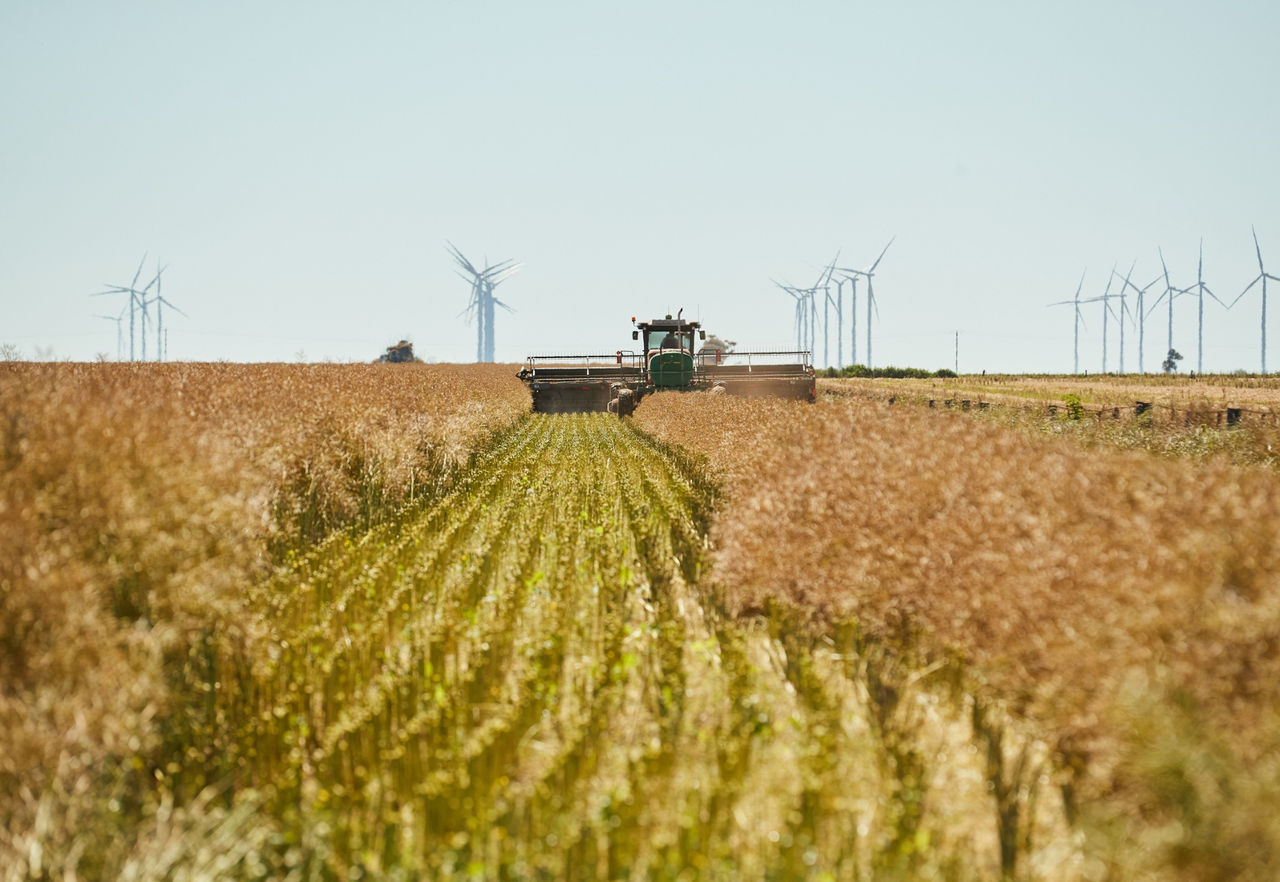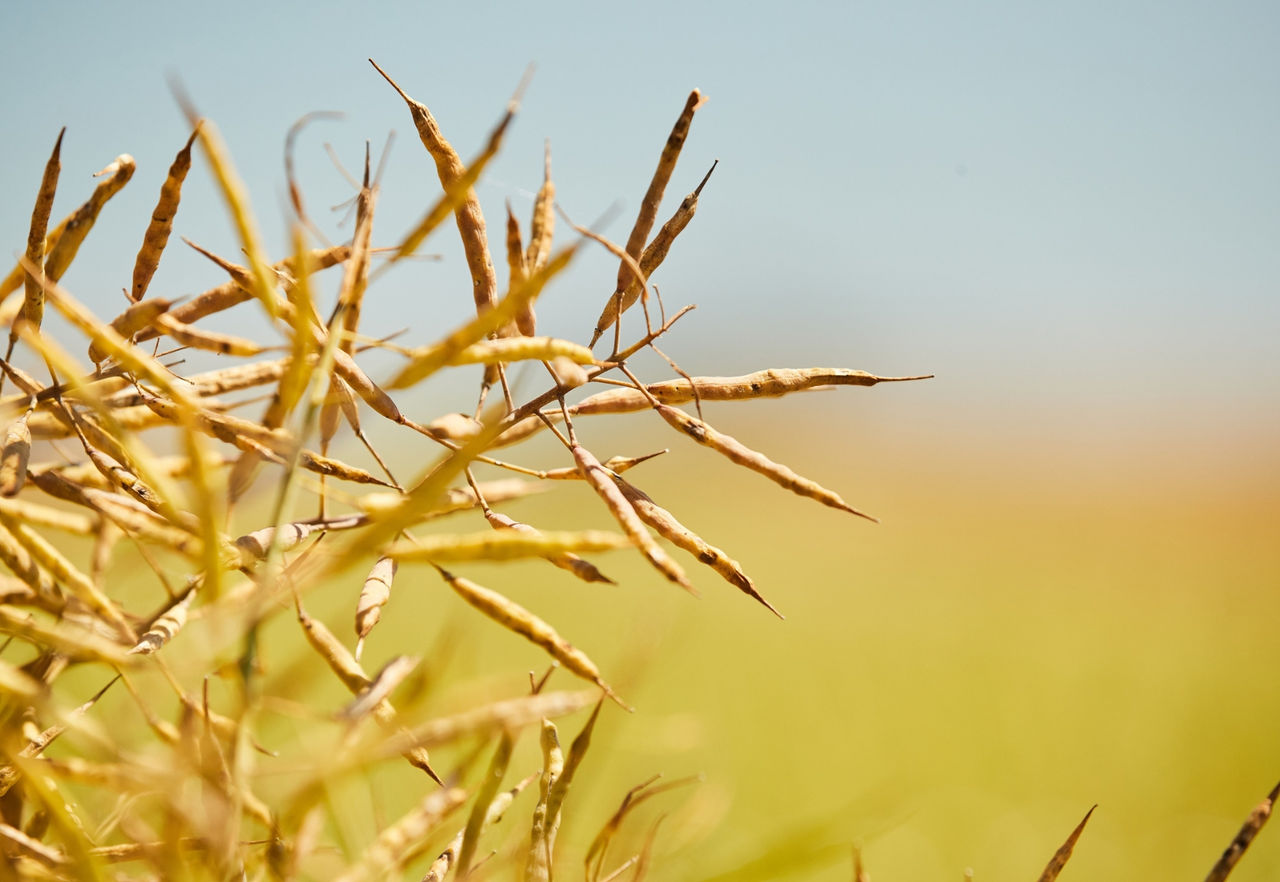Lodging is an important issue affecting canola production in Australia and can have significant economic consequences for farmers.

Stem lodging is the bending over of the stems of canola crops, which makes them very difficult to harvest, and can dramatically reduce yield. The timing of the lodging will determine what level of effect lodging has on yield.
When canola plants lodge, they become more difficult to harvest mechanically, leading to increased harvesting costs and potential losses of both yield and quality.
Sometimes soil constraints or other factors (insects or root disease) which prevent good root development resulting in plants falling over and pulling what little roots that they have out of the ground. This is root lodging and is not what we are referring to when discussing stem lodging. Stem lodging is the snapping or bending of the stem above ground level.
Genetic
- Stem strength: There is variability in genetic stem strength across varieties so selecting varieties with good genetic stem strength is recommended.
- Plant height: Plants that grow tall have a greater susceptibility to lodging particularly as yield increases.
- Maturity: Matching maturity of varieties to their relative yield environments will tend to make sure that they are capable of greater standability.
Environmental
- Weather conditions: Adverse weather conditions such as heavy rainfall, strong winds, and thunderstorms can weaken the stems of canola plants. Excessive rainfall saturates the soil, reducing its ability to hold the plants upright, while strong winds physically push the plants over.
Management
- Plant density: Planting canola too densely can lead to overcrowding and competition for resources like sunlight, water, and nutrients. This can result in weak stems that are more susceptible to lodging.
- Nutrient imbalance: Improper nutrient management can result in weak stems that cannot support the weight of the plant. A lack of essential nutrients like nitrogen can lead to poor stem development.
- Pest and disease pressure: Insect pests and diseases can weaken canola plants, making them more vulnerable to lodging. Pests like aphids and diseases like Sclerotinia stem rot and Blackleg can compromise the structural integrity of the plants.

Lodging can have significant economic consequences for growers. When canola plants lodge, they become more difficult to windrow and harvest mechanically, leading to increased harvesting costs and potential losses of both yield and quality. Lodging can also create an environment conducive to diseases, further affecting crop health.
To mitigate lodging, growers can take various measures. These include selecting canola varieties with better lodging resistance, adjusting plant density, implementing proper nutrient management practices.
Lodging is a critical concern in canola production, impacting yield, quality, and profitability. Farmers must employ a combination of best practice, most suitable varieties, and careful planning to minimize lodging and ensure a successful canola harvest.
This article was written by Adrian Carter, Regional Market Development Manager – East, Nuseed.